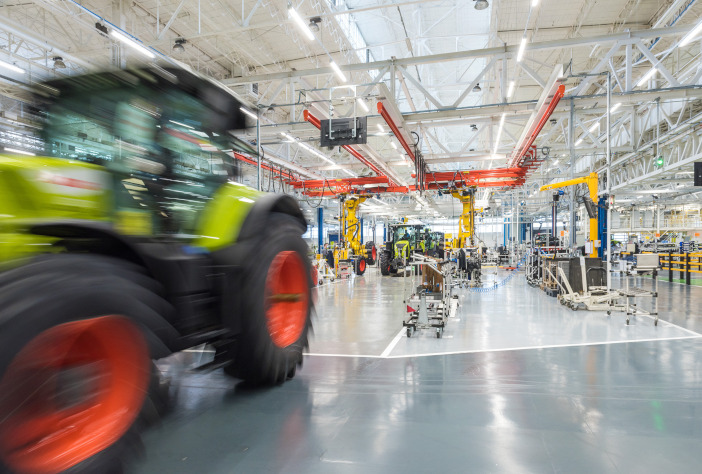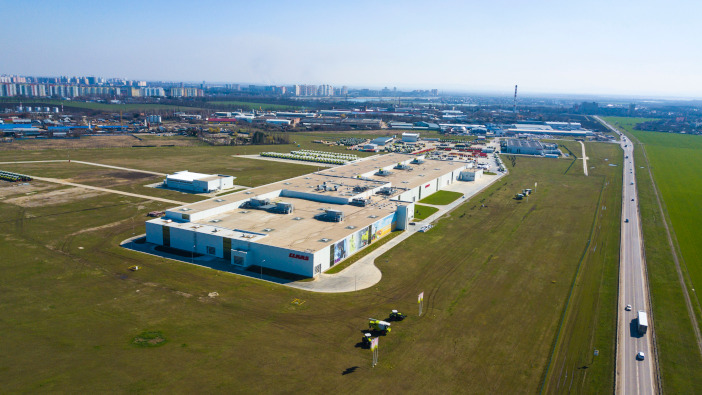Claas has reported a 19% increase in revenue to 4.8 billion euros, in its 2021 financial year. Pre-tax earnings rose to 357 million euros, which is up from 158 million euros in the previous year.
The company’s double-digit growth, across its world regions, comes regardless of problems with component supply and the Covid pandemic, while major growth occurred in the UK despite the uncertainty surrounding Brexit.
Spending on research and development rose by 10.5%, which saw the launch of the new Trion combine harvester range reaching a new record of 262 million euro. In line with their slogan ‘Fits your Farm’, Claas now offers a range of variants and equipment in the mid-range segment that is said to be unparalleled in this combine harvester class.
Investments in fixed assets totalled 138 million euros, with a focus on innovative electronic architectures and the digitisation of agricultural processes. In Le Mans, the Future Factory for tractors was reopened in May, following an extensive conversion. The Harsewinkel combine harvester production facilities also successfully concluded the second phase of its modernising, with over 15,000m2 of production space refurbished in five months.
Claas has also significantly expanded its production capacities in Krasnodar, Russia, where four times as many combine harvesters can now be manufactured, in comparison to five years ago.

The Axion 960 CEMOS has been awarded the title of “Sustainable Tractor of the Year 2021”, by an international panel of agricultural journalists. Its self-learning operator assistance system, CEMOS, demonstrably reduces diesel consumption in a double-digit percentage range, while increasing the area output at the same time.
The Arion 400 tractors received a facelift to mark the introduction of the Stage V exhaust gas after-treatment standard and have been equipped with several performance-enhancing parameters. The forage harvesting segment also saw a wealth of innovation, including an extensive technical update for the Quadrant large square baler.
The number of employees around the world rose over the course of the year and was 11,957 at the end of the fiscal year, in the previous year it was 11,395. The number of trainees also increased to 775, group-wide.
Overall, Claas anticipates stable demand for agricultural machinery in the most important sales regions during the 2022 fiscal year. The company expects a rise in revenue and a slightly lower result in a year-on-year comparison, as the supply situation and price development on the procurement markets present a greater risk in comparison to last year.


